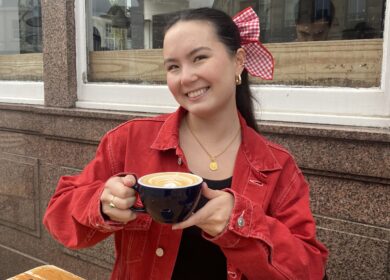
By Shereen Masoud-Jointe, Account Executive (Europe)
The tunes continued rolling in this week with some sounds from around the world — including Hong Kong, South Korea, Japan, Lebanon, Canada, and even a rom-com soundtrack fave from the U.S.
12. 數字人生 — George Lam
13. I Say A Little Prayer — “My Best Friend’s Wedding” edition
14. The Morning Dew — Yang, Hee-Eun
15. Time — Narcy feat. Mashrou’ Leila
16. あなた / “Anata (You)” — Hikaru Utada
.
Heesun Kim, an account director from our office in Seoul, reminded us of the political side of music with “The Morning Dew” — along with some intriguing historical context:
“It was written by a college student in 1970, and sung by another college student, Yang Hee-Eun. “The Morning Dew” was Yang’s debut song, and she instantly became popular among university students following American folk music and artists like Bob Dylan.
As an increasing number of students (even younger students and their teachers) came to like it, the government defined it as an unhealthy song fostering political resistance, and banned it.
From the lyrics below, you can feel both the sense of struggle and hope to overcome it. At the time, the government under the military conducted quite strong censorship.
“The Morning Dew”
Staying up for a long night, on every blade of grass
I see the drops of morning dew, prettier than pearls
As sorrow rankles in my heart like beads of dewdrops
I climb up the morning hills and learn a little smile
The red sun rises on the graveyard,
And the scorching heat is my trial
Now I go, into the harsh wilderness
Shake off all the sorrow, now I go
As sorrow rankles in my heart like beads of dewdrops
I climb up the morning hills and learn a little smile
The red sun rises on the graveyard,
And the scorching heat is my trial
Now I go, into the harsh wilderness
Shake off all the sorrow, now I go
Even though it was not related to politics at all, it was banned from 1975 to 1987 — over a decade. Ever since it was censored, the song became iconic for the democratic movement in South Korea.
Goes to show the power of language and of the arts in social movement building.
If you haven’t already, you can follow our playlist on Spotify for more curated tracks.

